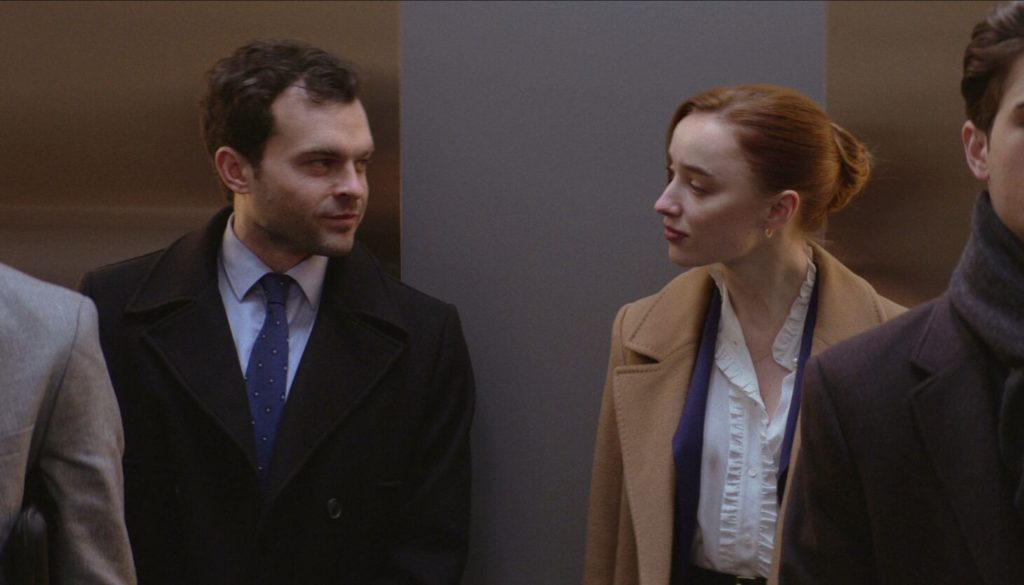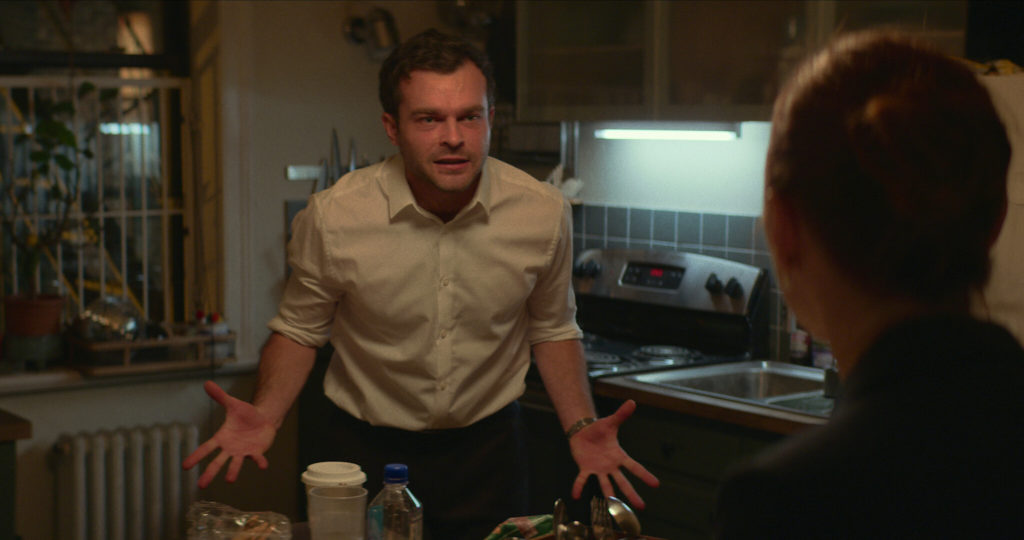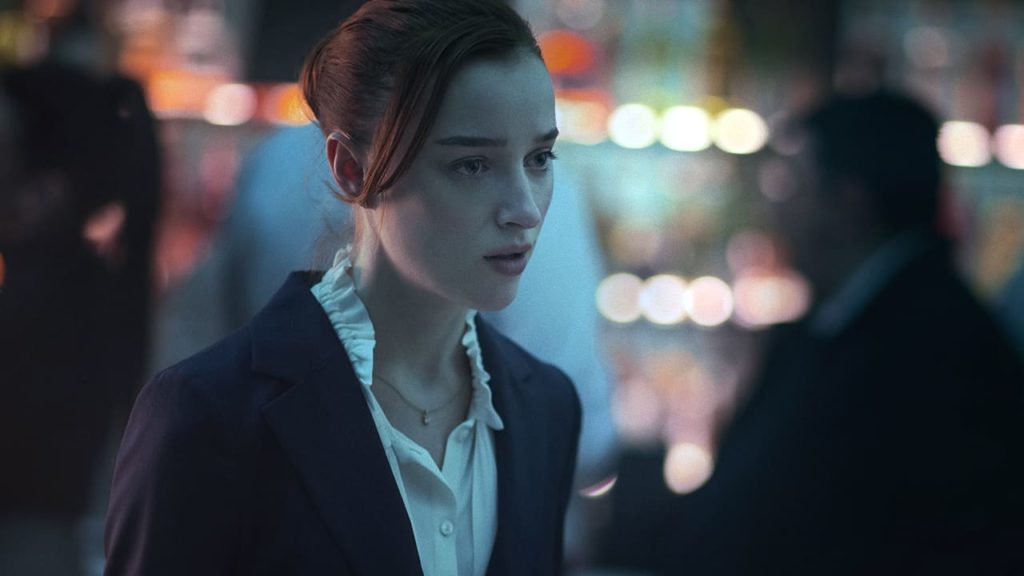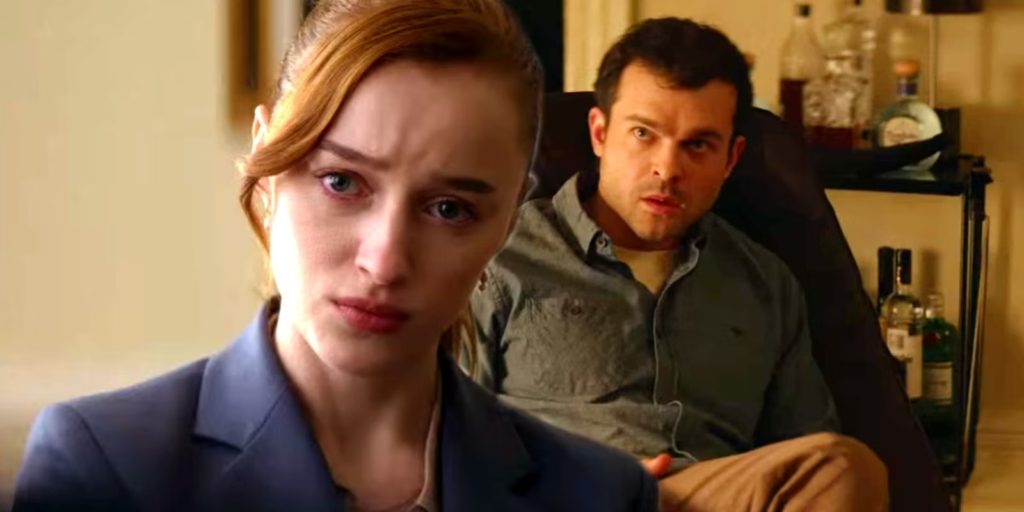Getting Lost in Amsterdam
Amsterdam is a confusing movie with a meandering plot amidst a beautiful rendering of 1930s New York


From the start, Fair Play feels mildly unsettling. A young couple, Luke (Alden Ehrenreich) and Emily (Phoebe Dynevor), clearly drunk, are making out in a restroom while avoiding a marriage gathering they were invited to. Luke attempts to perform oral sex on Emily, but gets blood on his face. Clearly this is from Emily’s unexpected period. While rummaging through his pockets, he drops a ring on the floor. “What the hell is that?” Emily asks. Luke recovers the ring and somewhat awkwardly faces Emily and proposes to her. Emily says, “You’re drunk.” Luke says, “I thought of it before I was drunk.” Emily accepts.
There is a lot of drinking in this film. In the form of orders at the bar, and half drunk bottles on the living room floor. I was surprised by how prevalent it was. These characters work in the financial sector, a high pressure setting with a lot of money at stake which justifies this imbibing of potent spirits to some extent. In the context of the film, alcohol played a huge role in Luke and Emily’s lives. It acts as a way for them to relieve stress, but also as a way to suppress the more problematic thoughts and feelings that put a relationship at risk.

Drinking hides the truth. It allows them to avoid the problems in their partnership. But issues abound and threaten to bubble up and explode in a mess of jealousy and rage. All the signs are there in the first scene. The audience feels the unspoken tension, despite their normalized drunken behavior acting as a mask.
It’s not just drinking, however. Luke and Emily live together and work for the same hedge fund. We assume it’s how they met each other. They keep their relationship a secret from their coworkers. They commute to work separately and have minimal conversation at the office. At first, it seems like they have the entire situation under control.
Then there’s a job opening at the firm. Emily overhears her co-workers talking about Luke likely being the one who gets the position. They celebrate that night together by drinking, assuming Luke has the position locked. However, senior management end up hiring Emily instead.

Emily is very good at her job. She comes up with exceptional analysis, and has a gift for studying markets and developing her own unique, expert opinions. Luke is more your average analyst. Initially, Luke is very supportive of Emily, but over time he becomes bitter over not being promoted. He begins following the advice of a self-help guru that allegedly advocates for assertiveness in one’s professional life.
Their relationship begins to suffer. Luke is disinterested in having sex with Emily and becomes hyper critical of everything she does. He arguably gaslights her when he says she dresses like a “cupcake,” making her self conscious of her clothing style. Later, he alleges that they only promoted her for optics, because it’s good to have a woman among the herd of male higher-ups.

Throughout the film there is a ticking clock music score that just adds tension and discomfort to every scene. The deterioration continues and shows its face at work when Emily loses 25 million dollars following bad advice from Luke. However, she is able to recover her losses by shorting a company, gaining a hefty commission in the process. Meanwhile, Luke makes a few misguided maneuvers. He continues to unmask into a dark head space and their relationship continues to sour.
We are seeing another side of Luke. A vengeful, petty side that surprises both Emily and the viewer. Soon everything is at stake for them both personally and professionally. There’s another exchange in a bathroom toward the movie’s end that weirdly resembles the first scene of the film. Only this time the truth is out. Spite and viciousness emerge in its wake.

Fair Play, among many things, is an examination of relationship dynamics. Specifically an imbalance where the strong, confident woman is the breadwinner while her male partner sulks with a damaged ego. At least when it comes to success in the workplace. Of course we see when feeling diminished, a man can behave irrationally and borderline psychotically.
The work place here is filled with foolish, sexist men. Unlikable, bullheaded children who are largely intolerant of women getting ahead on what they believe is their turf. I would like to believe that what we see is an exaggeration. But a lot of this is very real.
The audience is clearly meant to side with Emily. Throughout the film, she has a lot on her plate. There is this struggle between her professional and personal life. She needs to be both apologetic and ruthless, vulnerable and hardened, depending on the setting.
But that does not mean all of this is Luke’s doing. There are two sides to everything. Nobody told Emily to date a coworker. Her drunken antics at home are somewhat of an affront to Luke. Also, instead of respecting her higher-ups and the general order of things by letting him be fired, she takes pity on Luke, keeping him around the office when he should have been kicked to the curb. Someone should have told her to let the dominoes fall as they will.
Would this have changed anything? Or was this couple on track to destroy each other from the get-go?

On the surface, rival coworkers at the office, competing for one job while falling in love almost sounds like a romantic comedy. But Fair Play is the farthest thing from it. It’s a chilling, intense film, but also riveting and topical.
In the end, the movie clearly finds fault with one party over another. It’s a satisfying ending, even if a bit rushed. I liked these characters and the way they went at each other. Call me mildly sadistic. Oddly, in a film called Fair Play, rules are nowhere to be seen and anything goes. All the drunkenness of the two main characters that may have helped mask their hostility and dissatisfaction early on just leads to a sober and harsh unfiltered reality.
Related lists created by the same author
Amsterdam is a confusing movie with a meandering plot amidst a beautiful rendering of 1930s New York
Related diversity category
Hiring bias is something that's rampant in all industries (even unconscious bias). But writing a script totally neutral not only opens the door for more diverse actors, but also for characters that are people first.
Related movie/TV/List/Topic
An adventure that centers on freedom and captures viewers' hearts.